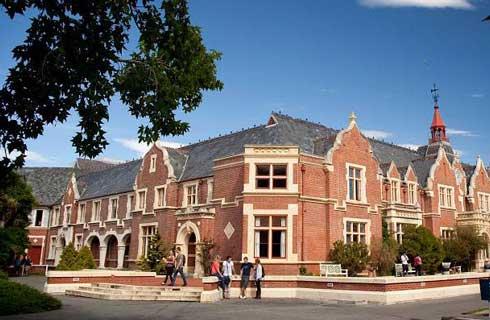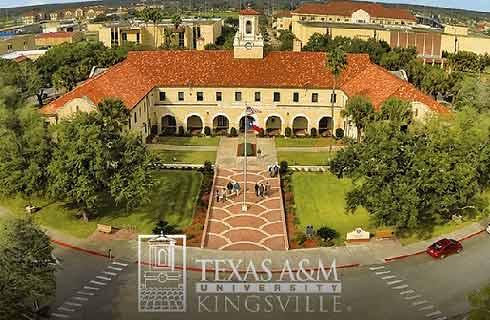环境保护理学士(荣誉)
BSc (Hons) Environmental Conservation

学历文凭
Bachelor Degree with Honours

专业院系
School of Environmental and Natural Sciences

开学时间

课程时长

课程学费

国际学生入学条件
IDP—雅思考试联合主办方

雅思考试总分
- 雅思总分:
- 托福网考总分:
- 托福笔试总分:
- 其他语言考试:
CRICOS代码: D447
申请截止日期: 请与IDP联系 以获取详细信息。
课程简介
Understanding how to tackle environmental issues such as pollution, climate change, unsustainable use of resources has become the important challenge of our century. We need to understand how we can effectively conserve species and their habitats. This course gives a theoretical grounding in how ecological systems work and a practical understanding of the issues surrounding environmental conservation. You’ll learn key skills needed by conservation professionals for monitoring habitats and species and how these need to consider social and economic factors for successful conservation.Successful conservation relies on an interdisciplinary approach. Our supportive, friendly and accessible staff have a range of expertise covering conservation, ecology, environmental science, forestry, and the social sciences. The Centre for Evidence Based Conservation, a world-recognised centre for translating conservation science into policy, is based here at Bangor.Our location, between the Menai Strait and Snowdonia National Park, offers unrivalled opportunities for learning about ecology, conservation and the natural environment outside the lecture theatre. Our courses are packed with field trips and practical sessions.We have close links with many of the local conservation organisations including Snowdonia National Park Authority, Natural Resources Wales and the British Trust for Ornithology which help students gain understanding of conservation practice.We also have excellent links with conservation organisations throughout the world. Staff and students are currently working in Madagascar, Costa Rica, Colombia, Ghana, Kenya and Bangladesh for example.It is possible to take the course as either a three-year degree or over four years with a placement year working with a relevant conservation organisation in the UK or overseas.Placement Year and International Experience Year AvailableCareersGraduates from this programme have gone on to become conservation or environmental managers in the UK and overseas as well as carrying out further study and research or teacher training.
相关申请
 预科
预科 奖学金
奖学金 实习机会
实习机会 在校学习
在校学习 跨境学习
跨境学习 校园授课-线上开始
校园授课-线上开始 在线/远程学习
在线/远程学习
开学时间&学费
学费信息仅供参考,请与IDP联系以获取详细信息
| 开学时间 | 时长 | 学费 | 地点 |
|---|
学校排名

世界排名401
数据源:
泰晤士高等教育世界大学排名
关于班戈大学

班戈大学自 1884 年建校以来,一直致力于提供世界一流的教学和研究。班戈大学位于北威尔士,地理位置优越,适合希望体验充满活力的生活方式和令人兴奋的户外活动的学生。班戈大学有多种学科课程可供选择。该大学是北威尔士医学院的所在地,新设施有助于培训学生从事医疗行业的各种工作。该校还提供海洋科学等专业科学课程,并拥有自己的研究船--马多格王子号。班戈大学的学生在第一年(9 月入学)可享受住宿保障,并可选择加入 150 多个俱乐部和社团中,结识志趣相投的人,建立牢固的社会纽带,在学习之余享受乐趣。班戈大学卓越的课程设施和热情洋溢的教师团队有助于确保所有学生都能享受到量身定制的丰富学习课程。学生将受益于专业级的资源和学习空间,以及真正关心帮助培养下一代行业领袖的教学人员。斯诺多尼亚国家公园距离班戈大学近在咫尺,可以欣赏到壮丽的景色,可以散步,还可以尝试各种户外运动。在稍远的地方,学生可以乘坐火车方便地到达利物浦和曼彻斯特,以及北威尔士的其他旅游胜地,包括众多美丽的海滩,学生可以在课余时间去探索。
本校相关课程

威尔士历史博士/哲学硕士
学历文凭
Ph.D.
开学日期
课程费用总额


威尔士历史MA / PgDip
学历文凭
Masters Degree (Taught)
开学日期
课程费用总额


翻译研究博士/硕士
学历文凭
Ph.D.
开学日期
课程费用总额


实践翻译研究博士学位
学历文凭
Ph.D.
开学日期
课程费用总额


翻译研究(MA)
学历文凭
Masters Degree (Taught)
开学日期
课程费用总额


MSc Sustainable Tropical Forestry (SUTROFOR) (Erasmus Mundus course)
学历文凭
Masters Degree (Taught)
开学日期
课程费用总额

其他相关课程

Environmental Pollution and Management PhD
 布莱顿大学
布莱顿大学泰晤士高等教育世界大学排名:755
学历文凭
Ph.D.
开学日期
课程费用总额


环境与商业(荣誉)文学士学位
 利兹大学
利兹大学泰晤士高等教育世界大学排名:118
学历文凭
Bachelor Degree with Honours
开学日期
课程费用总额


哲学博士(可持续资源管理)
 纽卡斯尔大学
纽卡斯尔大学学历文凭
Ph.D.
开学日期
课程费用总额


MSc Environmental Sustainability
 爱丁堡龙比亚大学
爱丁堡龙比亚大学泰晤士高等教育世界大学排名:645
学历文凭
Masters Degree (Taught)
开学日期
课程费用总额


野生动物科学学士学位(荣誉学位)
 昆士兰大学
昆士兰大学泰晤士高等教育世界大学排名:80
学历文凭
Bachelor Degree with Honours
开学日期
课程费用总额


理学硕士淡水环境综合管理
 伦敦玛丽女王大学
伦敦玛丽女王大学泰晤士高等教育世界大学排名:135
学历文凭
Masters Degree (Taught)
开学日期
课程费用总额










